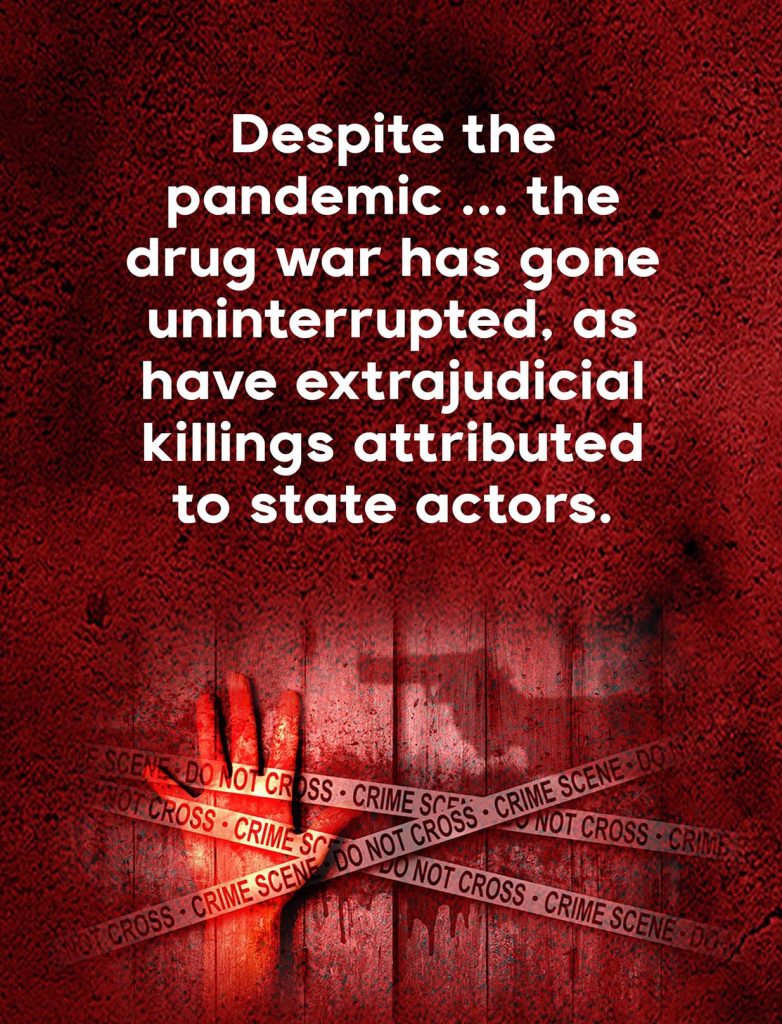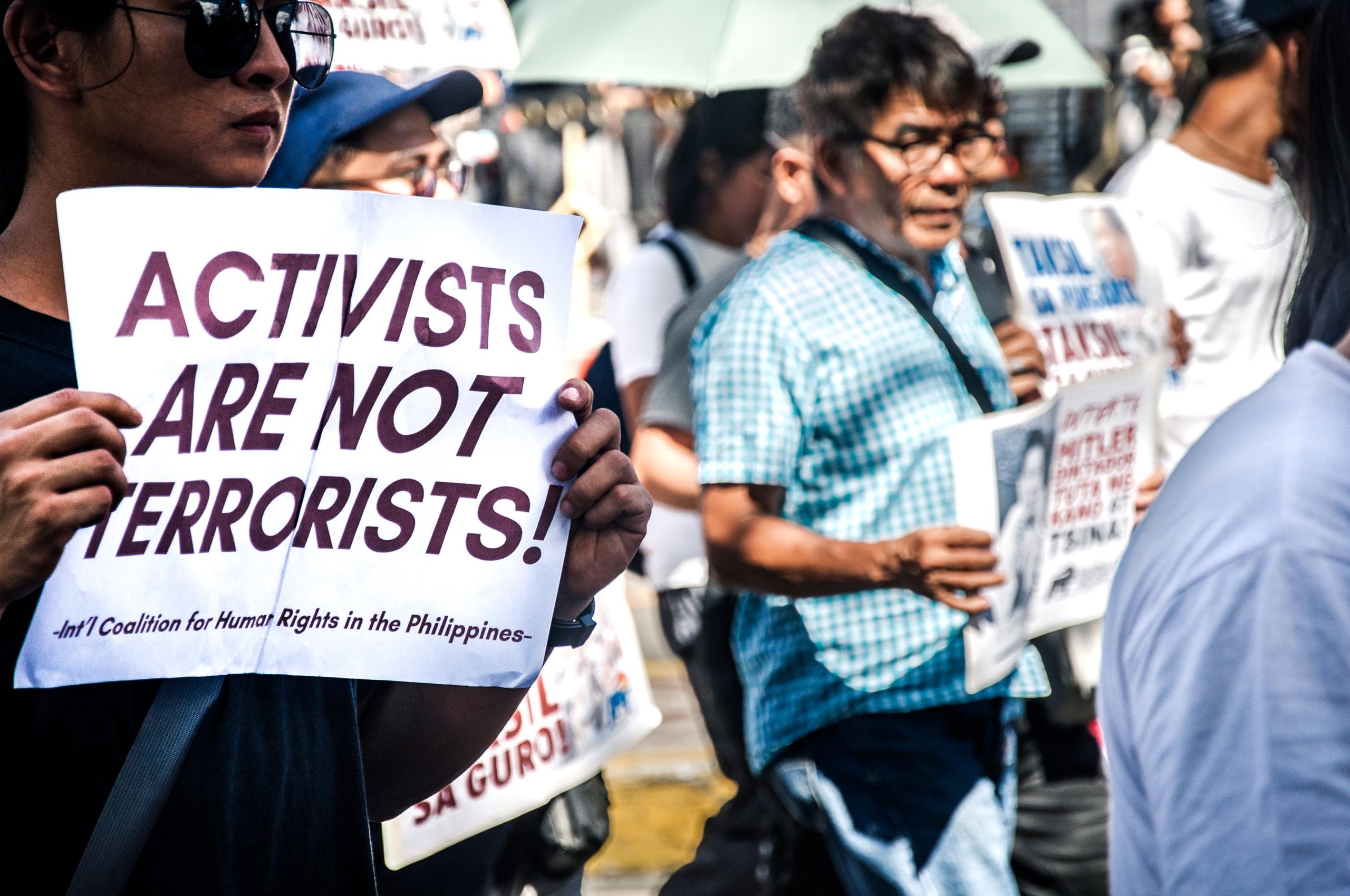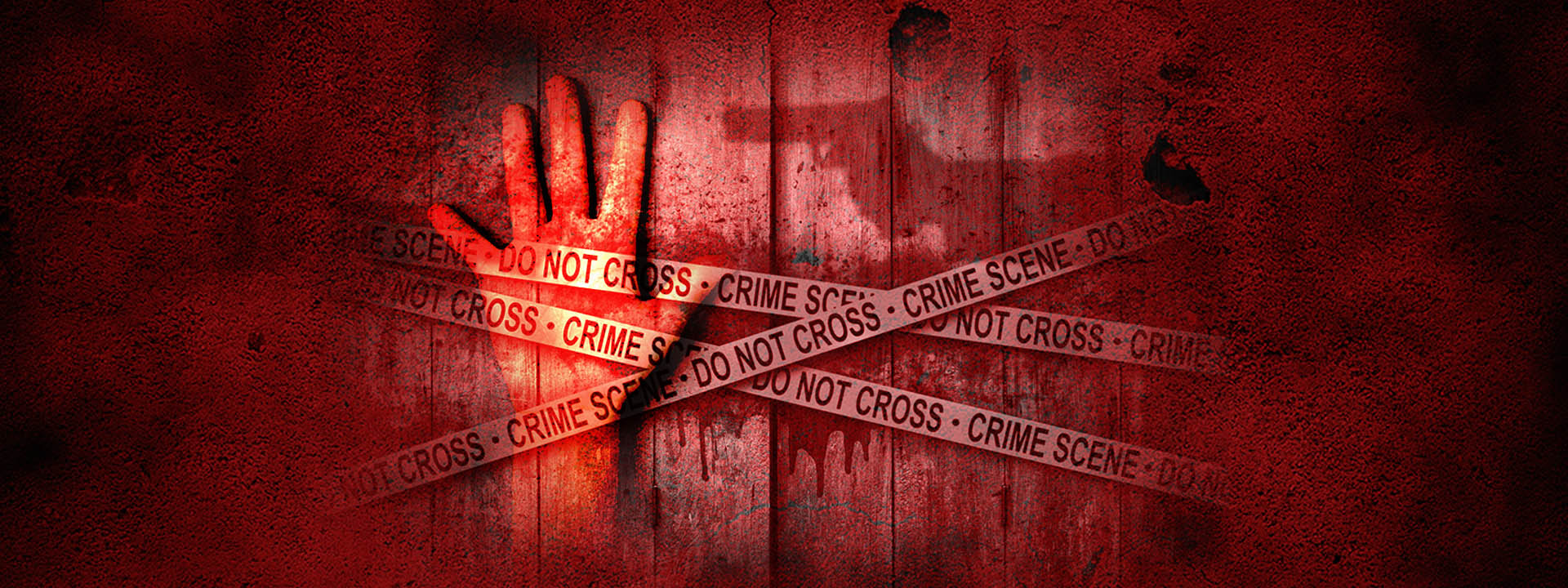She lost her 48-year-old husband in November 2019, when one of two men on board a motorcycle shot him dead outside the family home. Responding policemen said that their initial information was that he had been selling illegal drugs.
“I worked with my husband 24/7 preparing and selling cooked meals,” Araceli Flores (not her real name) recalls telling the police. “He never touched any drug stuff.”
“I learned that the barangay (village) officials listed my husband’s name among drug users, but later removed his name when they verified that he wasn’t,” the 42-year-old food vendor recalls. “But why was he killed? No one could provide me an answer. They told me to just abandon my case.”
After two years of searching for answers, she learned that cops who said they were ordered to fulfill “quota killings from higher ups” harassed the village chief into identifying residents who were into drugs.

In September 2021, the International Criminal Court in the Netherlands opened an investigation into possible crimes against humanity committed during Philippine President Rodrigo Duterte’s so-called “drug war” from 2016 to 2019.
“They were pressured to deliver,” says Flores. “I understand now that my husband’s senseless murder was part of this drug war, which was enforced to just kill people without even questioning, without even recognizing that everyone has the right to live.”
That “drug war” is the centerpiece program of the administration of President Rodrigo Duterte, who was elected in 2016 and is scheduled to end his term this June. Despite the pandemic, which has led to several lockdowns in the last two years, the drug war has gone uninterrupted, as have extrajudicial killings (EJKs) attributed to state actors.
In September 2021, the International Criminal Court (ICC) opened an investigation into possible “crimes against humanity” into the drug war from July 2016 to March 2019, when the Duterte administration withdrew the Philippines from the ICC’s Rome Statute. The ICC probe also covers alleged EJKs in Davao City from 2011 to June 2016. Duterte was the vice mayor and mayor, respectively, from 2010 to 2013 and from 2013 to 2016. His daughter Sara was the mayor from 2010 to 2013.
Persistent climate of impunity
The international watchdog Human Rights Watch (HRW) says that drug war killings persisted across the Philippines last year. Local and international groups have pegged the program’s death toll as between 12,000 and 30,000 people since Duterte took office.
“Authorities attribute 6,200 deaths to police drug raids, a figure that undercounts the loss of life and disregards police connections to ‘death squads’ and vigilantes implicated in killings,” says HRW in its World Report 2022. “Only one murder, captured on video, resulted in the conviction of police officers, while the vast majority were not even investigated.”
Lawyer Jacqueline Ann de Guia, the spokesperson of the independent government body Commission on Human Rights (CHR), affirms that EJKs have persisted despite the pandemic, with the victims including those in vulnerable sectors, human rights defenders, leaders and/or members of progressive groups, lawyers, and media workers. She says that the state of human rights violations has barely changed even after March 2020, when Duterte announced the country’s first lockdown, as “the climate of impunity remains persistent due to continuing violence and killings on the ground.”
In fact, the pandemic and the dramatic decrease in people’s mobility — which meant little or no street protests — seemed to have enabled the Duterte government to go after its critics with even fewer worries. In July 2020, for example, Duterte signed the Anti-Terrorism Law that, according to HRW, has vague provisions that the government can use to unjustly target critics, such as the creation of a government-appointed council that can designate a person or a group as a terrorist, making them liable to arrest without warrant or detention for up to 24 days.
Two months earlier, Duterte allies in Congress voted not to renew the franchise of the country’s largest broadcast network, ABS-CBN, forcing it to lay off thousands of its employees. ABS-CBN’s former frequencies were awarded to a Duterte ally.

For de Guia, the COVID-19 pandemic itself posed a human rights challenge to the government. “Vaccine supply, distribution, and rollout impacted the right to health of many, further compounded by vaccine hesitancy that led to policies that could result in undue discrimination,” she says. Indeed, some critics have noted that instead of addressing misinformation that was causing vaccine hesitancy, the government came up with policies such as “no vaccine, no work,” “no vaccine, no pay,” and “no vaccine, no assistance (for the poorest sector)” — all of which created a stigma against the unvaccinated.
The HRW meanwhile says that while fewer COVID-19-related rights violations occurred in 2021, the government clearly mishandled its response, leading to vaccine supply that came in spurts, inadequate financial support for communities affected by lockdowns. The government even failed to properly pay frontline health workers. Last September, the Senate uncovered alleged corruption in the government’s purchase of medical supplies, favoring individuals identified with the Duterte administration.
For HRW, though, 2021 in the Philippines was the year of “red-tagging,” or the strategy of labeling people communists, directed against activists, environmentalists, labor organizers, and rights defenders. The red-tagging often used social media, putting those red-tagged at grave risk of attack. People linked to the military or police also threatened journalists and media outlets covering the insurgency or investigating abuses.
Many of those red-tagged were subsequently killed. According to the rights group Karapatan, 78 red-tagged activists were killed in 2020 alone. In March 2021, days after Duterte publicly ordered law enforcers to “finish off” communist insurgents, nine activists ended up dead during police raids. Rights groups have insisted that those killed were neither rebels nor supporters of the communists. Lawyers who represented red-tagged clients, among them journalists and leaders of indigenous peoples, have also been shot dead.
The HRW notes that officials of the National Task Force on Ending Local Communist Armed Conflict, created by Duterte in December 2018 and which is the main government body supposedly tasked with defeating the communist insurgency, have red-tagged activists, lawyers, media groups, and even food volunteers.
Press gags itself
With the rampant red-tagging, and subsequent threats, arrests, and killings, many members of the media have taken to self-censorship. Or as National Union of Journalists of the Philippines (NUJP) Chairperson Jonathan de Santos puts it, “They have to stay off the radar of authorities.”
“There have been aggressive attempts to tailor media coverage to the government narrative through pressure on newsrooms and labeling of independent and critical newsrooms and media workers as terrorists or enemies of the state,” he says. “This kind of labeling has led to harassment, surveillance, arrests, and even deaths.”
The Committee to Protect Journalists has reported 11 unsolved murders of Filipino journalists in 2020 and ranked the Philippines the seventh worst country in the world when it comes to prosecuting murderers of journalists. According to another global media watchdog, Reporters Without Borders, 22 Filipino journalists have been killed since 2016.
De Santos says that NUJP will launch this year a review of pending cases in media. “It is fair to say that these are far from resolved,” he says. “In many cases, authorities file charges against suspected gunmen but do not look for or charge the people who ordered the attacks on media.”
Media ownership by political clans and conglomerates is another challenge, he says. “(This) makes presenting alternative views even more of a challenge given the interests of media owners and the government’s demonstrated readiness to use legal and regulatory processes to ‘punish the press’,” de Santos says, citing ABS-CBN’s loss of its franchise. Duterte had long said that he would go after the network for a perceived personal slight.

In the Philippines, activists, environmentalists, labor organizers, and rights defenders are often “red-tagged,” or accused of being communists, by the police and military. This puts them at grave risk of attack.
“There is really only one response to the repression that media has experienced in the last six years, and that is to keep doing the job and to do it together,” says de Santos. “The safety and security that we thought we had as members of the media no longer holds. Attacks could happen to any of us.”
“We fear that challenges will continue in the duration of the Duterte administration, especially with the enactment and implementation of the terror law,” says Karapatan Secretary General Cristina Palabay.
The Philippines is now preparing for the May 2022 elections. Says Palabay: “We expect the next president to conduct thoroughgoing reforms, addressing the root causes of the issues and policies that have been detrimental to the lives of Filipinos.”
“It is imperative that the election discourse tackles protecting the right to life in relation to due process, rule of law, accountability, and addressing the culture of impunity,” says CHR’s de Guia. “The unresolved deaths and continuing violence have long-term effects. The candidates should have [a] clear stance on how to address this problem.”
With the support of civil society organizations and government partners, she says “finding common ground is always possible.” ●
Diana G. Mendoza is a freelance journalist based in Manila.



















